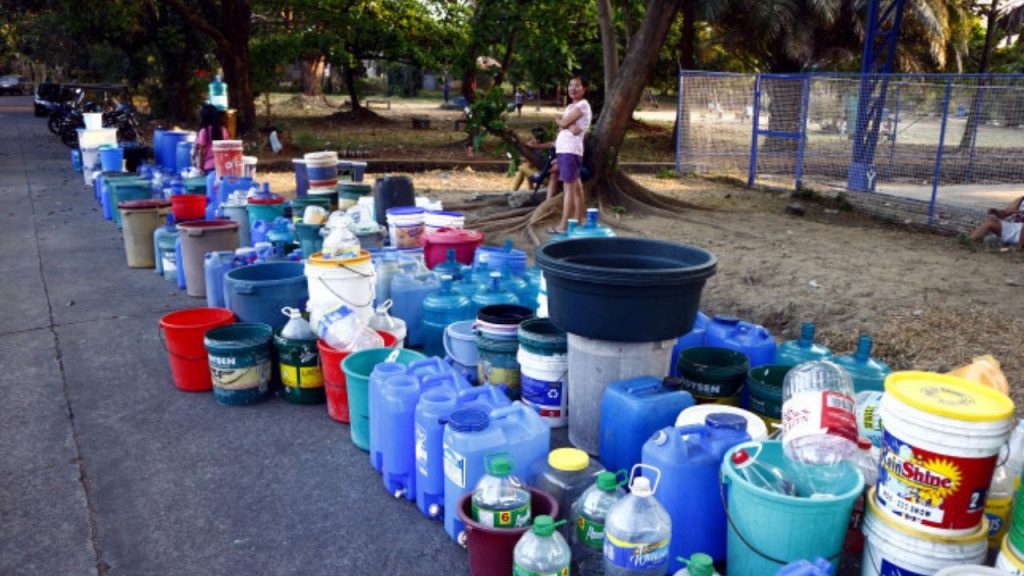Residents of Addition Hills in Mandaluyong City wait for their turn to fill up water containers amid a dwindling water supply due to the effects of El Niño in the metropolis and elsewhere. (Photo from NewSecurityBeat)
MANILA — In light of the anticipated severe impact of El Niño in the tropical Pacific, which is expected to affect the National Capital Region (NCR) and several provinces in Luzon from the end of 2023 until January of the following year, Climate Change Commissioner Albert Dela Cruz Sr. has advised residents of Metro Manila to conserve water.
This recommendation comes as the water level at the Angat Dam continues to decline and an extended period of El Niño looms ahead.
With El Niño causing drier conditions, Dela Cruz emphasized the importance of water conservation to prevent significant water interruptions later this year. His advice echoes an advisory issued by the Water Resources Management Office (WRMO) of the Department of Environment and Natural Resources (DENR).
Preliminary data from the United Nations World Meteorological Organization (UN-WMO) indicates that the first week of July recorded the highest temperatures ever observed, accompanied by unprecedented sea surface temperatures and a record-low extent of Antarctic sea ice. Experts from the WMO have noted that global sea surface temperatures reached record highs in May, June, and July, indicating the early stages of the warming El Niño weather pattern. They further emphasized that these record-breaking temperatures, both on land and in the ocean, could have devastating effects on ecosystems and the environment, highlighting the far-reaching changes occurring in Earth’s system due to human-induced climate change.

Meanwhile, the Philippine Atmospheric, Geophysical, and Astronomical Services Administration (PAGASA) has revealed that Metro Manila and 24 provinces will experience drought as El Niño intensifies towards the end of the year and the first quarter of 2024. PAGASA’s Climate Monitoring and Prediction Section chief, Ana Liza Solis, pointed out that certain areas in Luzon, such as Tarlac and Isabela, have already begun to experience dry conditions since last month, while Apayao, Cagayan, and Kalinga have been grappling with dry spells caused by the phenomenon.
In response, Commissioner Dela Cruz urges citizens to reduce activities that consume significant amounts of water, such as watering lawns and washing vehicles. He also encourages the public to embrace rainwater collection for non-potable purposes and to reuse laundry and dishwashing wastewater for watering plants.
Dela Cruz stressed the importance of preparing for the impact of El Niño this year to mitigate its effects next year. He reassured that appropriate contingency measures can prevent significant damage to the economy as a result of El Niño. (ai/mnm)







